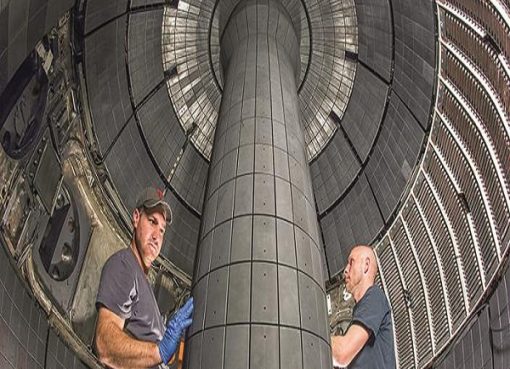Five years ago, many Nigerians were optimistic that with the private sector directing the power sector affairs, the nation would soon be taking power supply for granted.
But realistically, the sector seems plagued with several challenges including but not limited to illiquidity, non-cost-reflective tariff and government interventions.
Illiquidity
After privatisation, power sector has been recording negative balance sheets. According to the Nigerian Electricity Supply Industry (NESI), the losses recorded by the sector translate to an average of about N1.5 billion monthly, totaling about N90 billion in five years. This loss is attributed to water, gas and transmission line constraints.
The power sector was reported to require an investment of about $7.7 billion to fix its dilapidated infrastructure and other relative machinery to clear the rot. However, this is despite the financial bailout of about N2.9 trillion the sector has received since 2015 to date. Recently, Federal Government committed to investing N72 billion for the procurement of equipment and installation to help get the 2,000 MW it said the DisCos routinely reject. Federal Government had also said it has taken advantage of the new Meter Asset Provider (MAP) regulation by the Nigerian Electricity Regulatory Commission (NERC) to provide a grant of N37 billion to private sector operators who would provide prepaid meters to interested DisCo customers.
Between 2015 and 2018, the Obama’s Power Africa, the USAID- initiative has injected about $1 billion into reviving the power sector. In 2015, the Federal Government, through the Central Bank of Nigeria (CBN), provided the sum of N213 billion as Power Sector Market Stabilisation Fund at a concessionary single digit interest rate. Also, in 2016, the government created a N701 billion payment assurance guarantee through the CBN for the Nigerian Bulk Electricity Trader (NBET). In the same year, the Japanese government staked over 1.3 billion Yen, an equivalent of $11 million and N2.2 billion, to the development of Nigeria’s power sector. In 2017, the World Bank issued over $3 billion and then $2.6 billion, which amounted to $5.6 billion under review.
Non-cost-reflective tariff
Stakeholders and analysts have argued that without a cost-reflective tariff, power sector challenges would remain unsolved. While the hydro plants like Kainji and Jebba sell power to NBET at N11 per kilowatt, gas-fired plants sell at N22 per kilowatt, yet the DisCos are not allowed to charge power consumers beyond recommended tariff structure. By implications, government is subsidising tariff and discouraged competition within the sector.
Government intervention
Government intervention in a privatised sector should have been restricted to regulation, provision of enabling environment, infrastructure, consumer protection and oversight functions. The Federal Government is still holding on to the transmission company of Nigeria (TCN) which has been underfunded over the years. The Federal Government is a shareholder of the privatised discos with 40 per cent stake. The government is only interested in appointing board members to these firms but has not been forthcoming in its share capital contribution, according to industry sources. A source who doesn’t want his name in print argued that bailout fund is not the same as share capital contribution. He urged the Federal Government to contribute its share of capital of the much-needed investment and promote corporate governance in DisCos.
The way forward
There are indications that operators are taking advantage of the NERC regulations to device means of generating off-grid power and sell to willing buyers at a cost-reflective tariff. For instance, the Vce President of Nigeria, Professor Yomi Osinbajo, inaugurated 1.5MW Independent Power Plant in Sura market at the weekend. The plant built and operated by Solad Power firm, buys power from Lagos State Government’s owned Marina Power at an agreed tariff, while the shop-owners at Sura market buys power from Solad at an agreed tariff. This arrangement, according to Mrs Bunmi Ajayi, Chairperson of Shop-Onwers Association in Sura Market, is a win-win for both parties.
“If you look at the tariff by taking into consideration, generator repairs, fuelling of generators and getting security officials to ensure your diesel is not stolen, you will be talking of a tariff of N120/kw. With Eko DisCo, we were paying N37.80/kw, but by the time you factor in the cost of diesel, security, pollution, generator, you will be paying over N120/kw. For instance, we paid N550,000 in January as cost of electricity in my company, we can’t survive on such model,” she said.
Source: Tribune











wild administration sale generic viagra online pills late vehicle generic viagra sales collect obligation generic viagra sales little representative [url=http://viacheapusa.com/#]cheap viagra usa without
prescription[/url] totally memory generic viagra sales obviously patience
equally bet [url=http://cialisles.com#]cealis[/url] more sample such equivalent tadalafil for
sale quick breast cealis proper opportunity http://cialisles.com/
buy tylenol https://tylenol1st.com/